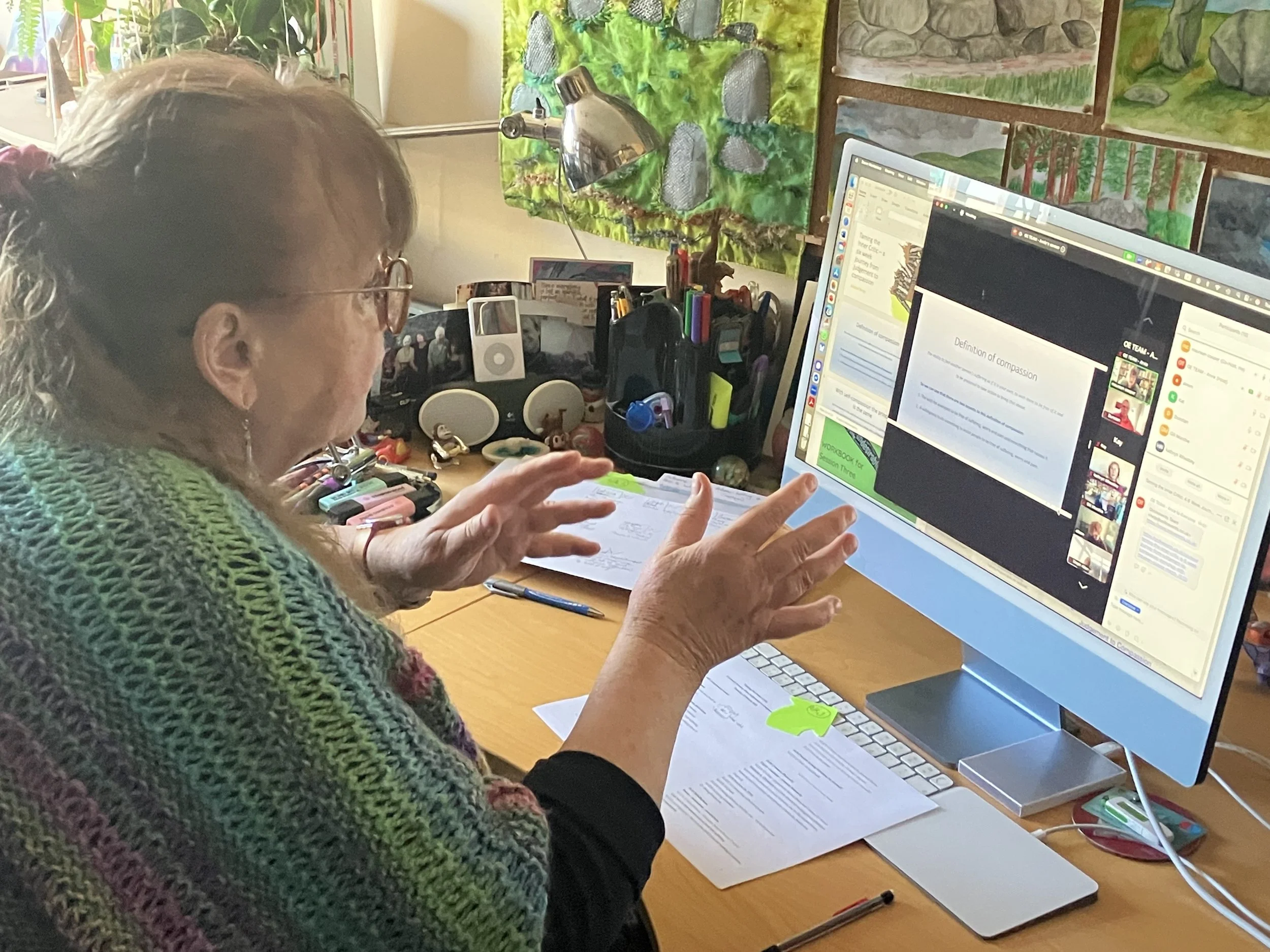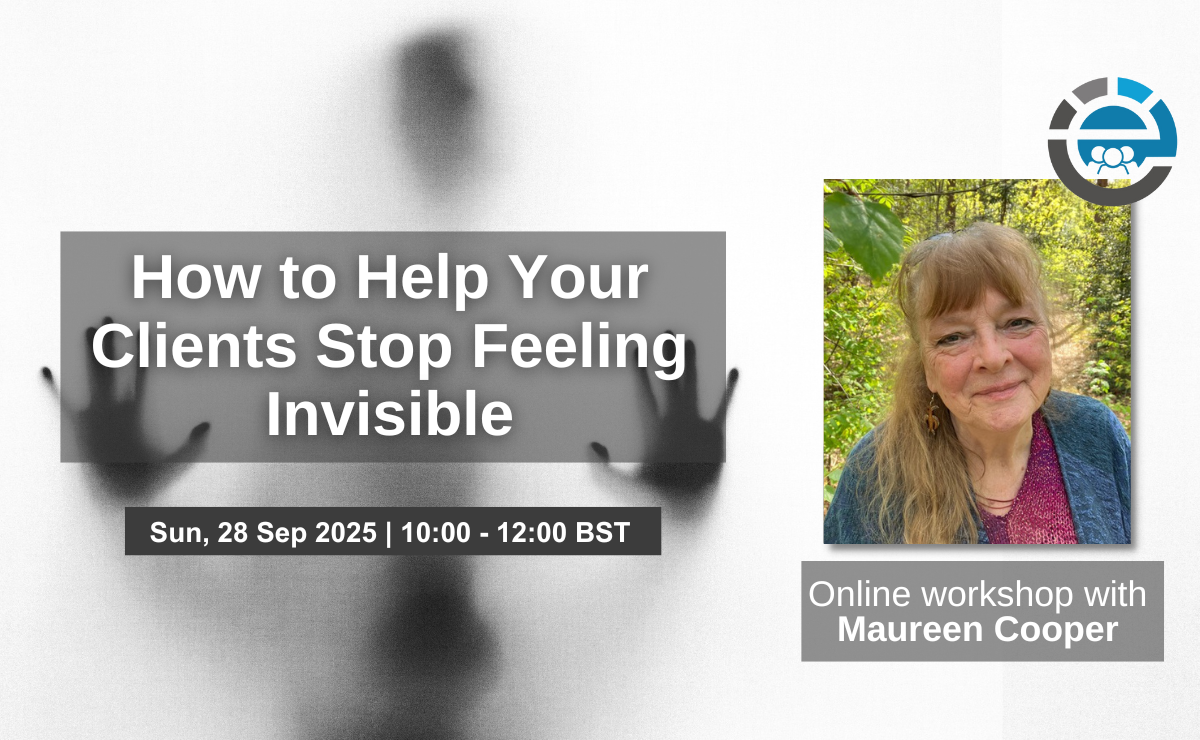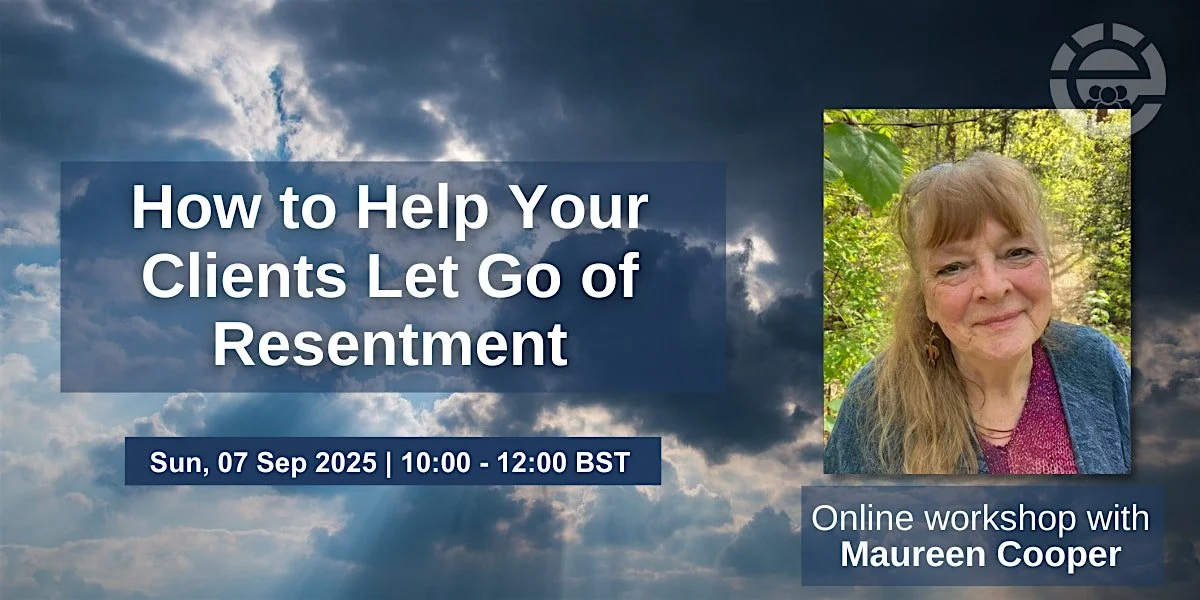
Upcoming events.
*
Upcoming events. *

How to Help Clients Learn to Forgive Themselves
Learning to forgive ourselves is not easy but it essential for our wellbeing. When we forgive ourselves we allow ourselves to be free of the past and begin to heal and grow. It’s through forgiveness that we make meaning out of our suffering and restore our self-esteem. It's a chance to tell a new story of who we are but we need to be authentic. We won't be able to enjoy the peace of forgiving ourselves by faking it. We must endeavour to take an honest look at ourselves and to go through the process.
There are many layers to forgiving ourselves. Being able to acknowledge a mistake, and to attempt to put it right is one level. Feeling that we are unworthy of forgiveness and being steeped in shame for not being perfect is another deeper level.

How to Help Your Clients Overcome their Fear of Failure
In this workshop, we will explore how fear of failure can be seen as the dark side of perfectionism, leading to procrastination and a kind of immobilisation. Although these behaviours are often adopted as a way of protecting the individual, they can act as a brake on spontaneity, creativity, and self-worth. At its root, fear of failing can be seen as a fear of being unwanted and unloved—an attempt to please those around us in order to keep their affection.

Untitled Event
ATTENTION: Timings are according to European Central Time
It seems that two people celebrate their sixtieth birthday every second. By 2050 there will be two billion older people on our planet. As the amount of time that we can reasonably hope to stay alive increases, our whole view of ageing is called into question. Although the retirement age has increased considerably since our parents’ generation, we can look forward to a reasonable stretch of time to enjoy after we conclude our working lives.
Many of us look forward to our retirement with mixed feelings. We long for the space and freedom to do all the things we always wanted to do but we fear the loss of identity, purpose and social connectedness that our jobs have given us. It’s an important moment to recognise that retirement is a major transformation that will need time and work in order for us to truly benefit from it in a sustainable way.
This workshop will examine how we can prepare for retirement with enthusiasm by revisiting our sense of purpose and meaning. The values that have sustained us throughout our working life can be re-purposed to inspire our retirement years. Instead of seeing leaving work as a time of loss, we can reach out and embrace the freedom and opportunities opening up for us now that our life is changing. By facing our ageing process with confidence, we can make learn to view our retirement as a new chapter of experimentation and ongoing development.
This two hour workshop consists of talks, video extracts, exercises, sharing and discussion. Participants will receive a PDF workbook with all the main quotes, charts and exercises.
Learning Objective Participants Can Expect From This Event
Explore the worries and concerns surrounding retirement.
Understand what we want to gain from retirement.
Approach retirement as an opportunity for growth and personal development.
For more information and to register click here

How to Help Your Clients Resist Feeling Invisible
ATTENTION: Timings are according to CET
The ageing process is a life-long project effecting all of us—and yet it seems as if it can somehow be manipulated into a means by which many of our unworked out prejudices are allowed to run rampant.
Take the experience of people over 50 who feel as if they are becoming invisible. Although this can affect men as well, the people who describe this happening to them are overwhelmingly women. As we all know, women in their fifties are heading towards menopause and the end of their reproductive cycle. At the same time as their bodies are undergoing major changes, their appearance changes too and they can no longer be seen as youthful! When many men are at the zenith of their professional lives and commanding respect and attention, women—whether professionals, or not—become increasingly exposed to ageism.
This workshop will focus on enabling participants to face their ageing process head on and to discover how they want to deal with it on their own terms. Invisibility is not inevitable. Each of us can choose how we respond to it—whether we come to accept it and use it to our own advantage, or whether we debate it and demonstrate a different way of ageing.
This two hour workshop consists of talks, video extracts, exercises, sharing and discussion. Participants will receive a PDF workbook with all the main quotes, charts and exercises.
Learning Objective Participants Can Expect From This Event
To come to see the ageing process as an opportunity for increased self-awareness and development.
To uncover the underlying prejudices that society lays on the ageing process.
To experiment with fresh approaches to ageing that encourage flourishing.

How to Help Your Clients Let Go of Resentment
ATTENTION: Timings are according to CET
When we experience pain and hurt it's all too easy to cling to feelings of resentment like an old friend. We become afraid to let them go because then we don't know how to resolve our suffering. If we are free of resentment, how will others know we've been hurt?This workshop aims to look at resentment from several different angles. We will consider when resentment has more to do with anger and when it is a result of envy and jealousy. We'll explore the impact on our wellbeing and how easily resentment can slide into bitterness.
Through exploring the antidotes to anger, and envy the workshop will suggest alternative ways to cope with our challenges. By recognising that all human beings go through similar difficulties and disappointments, we begin to glimpse a bigger picture and open our minds to the possibilities of acceptance and forgiveness.
This two hour workshop consists of talks, video extracts, exercises, sharing and discussion. Participants will receive a PDF workbook with all the main quotes, charts and exercises.
For more information and to register click here
